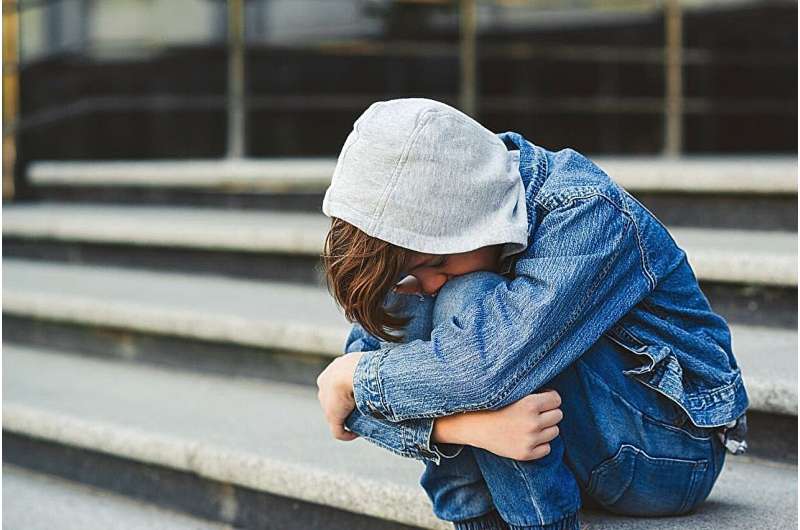This article has been reviewed according to Science X's editorial process and policies. Editors have highlighted the following attributes while ensuring the content's credibility:
fact-checked
reputable news agency
proofread
Parents, take note: Survey shows teens need more support than they get

As millions of American teens continue to struggle with their mental health, a new survey reveals a sizable gap between how much support teens say they get and how much support their parents think they are getting.
In the report, published Tuesday by the National Center for Health Statistics, just over a quarter of teens said they always get the social and emotional support they need while parents were nearly three times more likely to think they did.
"This suggests a systematic bias where parents consistently report higher levels of social and emotional support compared with their teenager's perception, and in doing so may underestimate their teenager's perceived need for social and emotional support," the study authors wrote.
Experts believe the need among teens can't be underestimated.
"The relationship that adolescents have with their parents is central to life for almost all of them. They're growing up, but they're still children in many ways," Dr. Jeffrey Arnett, a developmental psychologist and senior research scholar at Clark University in Massachusetts, told CNN.
There may also be a disconnect between the support parents think they're offering and the type that their teenage children actually need, Lisa Damour, a psychologist who co-hosts a parenting podcast, told CNN.
A parent's first instinct is often to provide advice or guidance, while teens tend to just want empathy and reassurance, she noted.
"When teenagers come to adults with concerns, I think above everything else, what they're looking for is for the adult to serve as a steady presence to maintain perspective about what's happening and help the teenager gain a sense of perspective," Damour said.
"So, when we go with our common instinct to offer advice or guidance or ask questions, I think sometimes that feels to teenagers like we are confirming that the problem is every bit as bad as it feels to them, and it doesn't have the intended effect."
The findings were based on nationally representative surveys of nearly 1,200 children ages 12 to 17 and their parents, conducted in 2021 and 2022.
Overall, 93% of parents thought their children always or usually had the social and emotional support they need, but only about 59% of teens felt that was true. Instead, 20% of teens said that they rarely or never had the support they need, compared with only about 3% of parents who thought the same.
Even more troubling, teens who didn't feel they always or usually had the support they need were significantly more likely to report poor health problems than those who did feel supported.
Depression and anxiety were nearly three times more common among teenagers who did not feel emotionally supported than among those who did; nearly a third of those who did not feel supported reported symptoms, according to the new study.
Meanwhile, two-thirds of teens who did not feel supported said they got poor sleep, compared with about a third of those who did feel supported. And nearly 14% of teens who did not feel supported said that they had poor health or low life satisfaction, compared with less than 5% of those who did feel supported.
Race and gender also played a role: Less than half of Black teens (42%) and LGBTQ+ teens (44%) said they always or usually had the social and emotional support they need, while their parents perceived this to be the case more than twice as often.
Teenage girls were less likely than boys to say they always or usually had the support they need, and there was a larger gap in perception of support between teen girls and their parents.
The U.S. surgeon general has emphasized the importance of protecting the mental health of youth, most recently calling for a warning label to be put on social media platforms.
"Often, supporting teenagers is as simple as being curious about what they bring our way and then offering empathy," Damour said. "Take comfort in the knowledge that helping a teenager feel heard and understood is overwhelmingly the most useful and therapeutic thing an adult can do."
More information: Cedars Sinai has more on teen loneliness.
© 2024 HealthDay. All rights reserved.




















